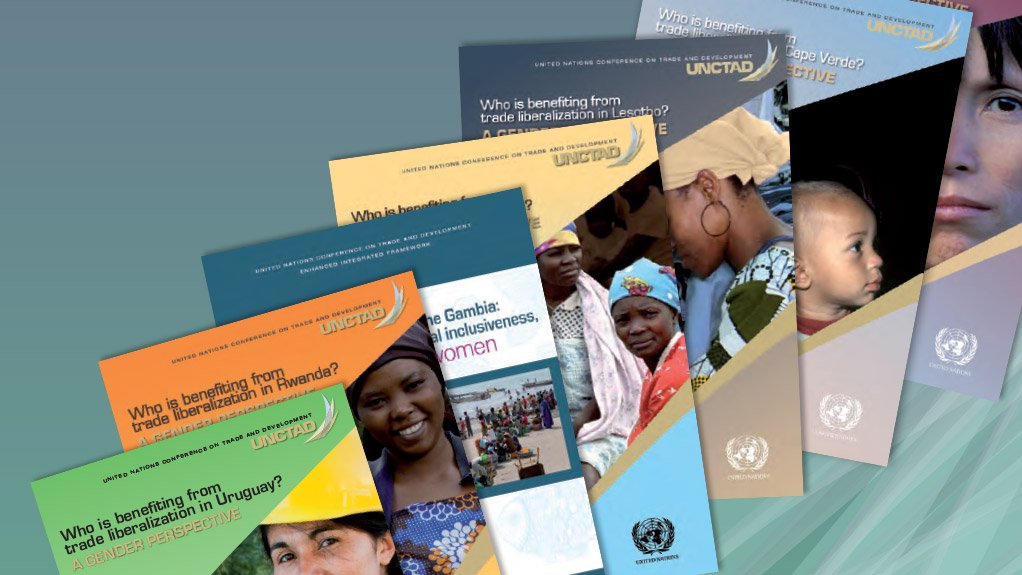- Looking at trade policy through a “gender lens”3.10 MB
This paper presents the findings of seven country case studies, which examine the impact of trade liberalization and facilitation on gender equality and women's well-being. The countries reviewed were: Angola, Bhutan, Cape Verde, the Gambia, Lesotho, Rwanda and Uruguay.
The case studies highlight the ways in which a gender perspective can contribute to a deeper and richer understanding of trade policy and performance by challenging the mainly aggregate focus of conventional trade policy analysis that overshadows the redistributive effects of trade at the country level.
It brings to the forefront of the analysis intersecting patterns of inequality (e.g. sex, income, race, and spatial location) and integrates social and cultural factors into the economic analysis.
All of the countries studied by UNCTAD have their own specific economic and social structures and histories and yet, they share many similarities in terms of the patterns of gender inequalities they manifest. These inequalities include women's low access to productive resources, segregation in particular sectors of the economy and relatively lower earnings.
The paper presents key economic and trade policy recommendations that have been made to promote gender equality in the countries studied, but that can be of relevance for a larger number of countries.
For instance, it emphasizes:
- Making smallholder production more viable and tackling land tenure issues in agriculture.
- Focusing on informal small and micro-enterprises and on creating forward and backward linkages in manufacturing.
- Promoting women's access to training and higher-skilled positions in the services.
The studies show that trade liberalization does not have unequivocally positive effects and that the impact on women is sometimes double-edged. Thus women may simultaneously gain and lose from the development of export sectors: they may get stable wage employment, but they may have low salaries and limited opportunities for skill development.
The paper stresses that gender considerations have only rarely been taken into account in trade and macroeconomic policies although such policies affect different groups of the population in profoundly different ways based on gender, geographic location, social status or membership in a racial or ethnic minority. "Gender blind" trade and macroeconomic policies risk crystallizing or even exacerbating existing gender inequalities instead of solving them.
Report by Unctad
EMAIL THIS ARTICLE SAVE THIS ARTICLE ARTICLE ENQUIRY
To subscribe email subscriptions@creamermedia.co.za or click here
To advertise email advertising@creamermedia.co.za or click here











